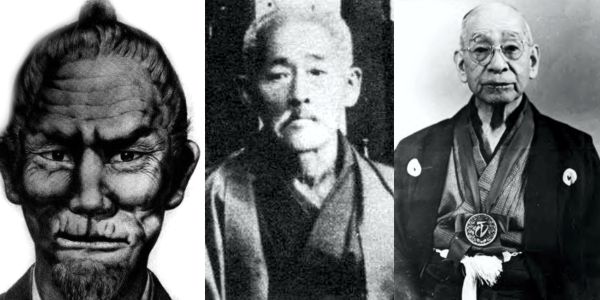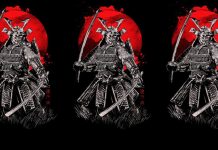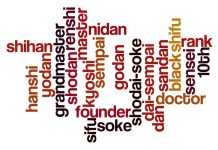 Matsumura Sokon traveled to China where he studied the martial art known as Shaolin Kenpo. It is not certain when Matsumura went to China, or for how long, but we do know that he was there long enough to receive a good education in Shaolin Kenpo. Later he began teaching his art, a combination of Okinawa-Te and Shaolin Kenpo, in the town of Shuri.
Matsumura Sokon traveled to China where he studied the martial art known as Shaolin Kenpo. It is not certain when Matsumura went to China, or for how long, but we do know that he was there long enough to receive a good education in Shaolin Kenpo. Later he began teaching his art, a combination of Okinawa-Te and Shaolin Kenpo, in the town of Shuri.
It was there that several of his students developed into great masters of the art that he taught. Of them, the one who became most well known was Yasutsune Itosu (1830-1915). Itosu is considered by many to have been the leading authority on Shorin-Ryu around the turn of the century, and until his death in 1915. He was one of the men most responsible for the beginning of the popularization of karate in Okinawa by developing a karate program for the Okinawan public school system shortly after the turn of the century.
Shorin-Ryu Karate developed from the old form of Okinawa-Te that had been practiced in Okinawa for centuries. It is a combination of a native Okinawan fighting art and Chinese martial arts, predominantly hard style or “external” Chinese martial arts. There are a few men in the history of Shorin-Ryu without whom any discussion of the art would be incomplete. One of the most significant men in the history of Shorin-Ryu was Soken Matsumura (1797-1889). Almost all branches of Shorin-Ryu that exist today can be traced back to him, as he had many excellent students who passed on his teachings. Soken Matsumura, sometimes called “Bushi” Matsumura, studied Okinawa-Te under a man known as “To-te” Sakugawa (1733-1815). Matsumura was young when he began his study of Okinawa-Te under Sakugawa, who was very old, and he learned a great deal from him.
It was in the late 1800’s that Shuri-Te began to be called Shorin-Ryu. It is not known for certain who began this practice, but most of the leading practitioners of that time accepted the new name which was a reference to the arts’ roots at the Shaolin temple in China (Shorin is the Japanese pronunciation of Shaolin), and soon the name Shorin-Ryu became the standard term for the art that had been known as Shuri-Te.
Itosu had, as did his teacher, Matsumura, many students who developed into great masters of the art that he taught. Of them, several became very well known and were instrumental in the further popularization of karate in Okinawa, and the introduction of karate to mainland Japan. His students carried on his teachings, using the name of Shorin-Ryu, and today Shorin-Ryu is still a major force in Okinawan karate. In fact, since Itosu’s death in 1915, Shorin-Ryu has produced countless karate greats, has branched into several major variations along with the original art, and is alive and well being practiced by thousands all over the world.






